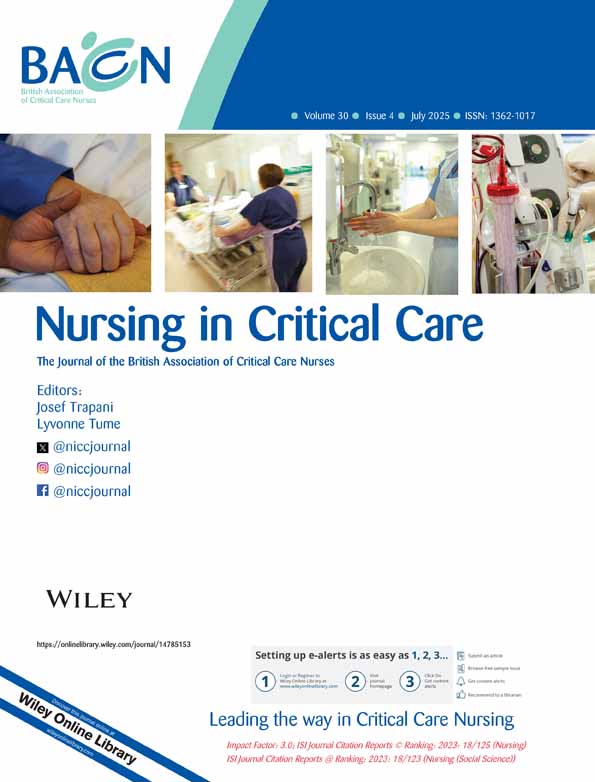Oral Care Practices, Attitudes and Challenges Faced by Intensive Care Unit Nurses in the Care of Intubated Patients: A Descriptive Study
Funding: This study was supported by the public, commercial or not-for-profit sectors.
ABSTRACT
Background
Oral care for intubated patients in intensive care units is a critical component in the prevention of serious complications such as ventilator-associated pneumonia; however, nurses' practices, attitudes and challenges may directly influence the effectiveness of care.
Aim
This study aims to investigate the oral care practices, attitudes and challenges of intensive care nurses in intubated patients.
Study Design
This descriptive study was conducted in the intensive care units of four different hospitals in Türkiye. Data were collected from 171 nurses working in the intensive care units of four hospitals between March 1, 2024, and July 1, 2024. The study used the “Personal Information Form,” the “Nurses' Oral Care Practices and Challenges Form,” and the “Attitude Scale for Oral Care Practices.” Data were analysed using descriptive analysis. The study followed the STROBE guidelines.
Results
Nurses' attitudes towards oral care practices were found to be positive, with a mean scale score of 131.08 ± 14.18 (min: 87, max: 170), indicating above-average levels. Regarding the challenges encountered in providing oral care for intubated patients, 84% of nurses reported mild to moderate patient-related difficulties, while 91.8% reported mild self-related difficulties. The most common patient-related challenge was the inability to establish cooperation with the patient (77.8%), whereas the most common nurse-related challenge was the lack of appropriate equipment (36.3%). No significant differences or correlations were found between socio-demographic variables, the presence of challenges and attitudes towards oral care (p > 0.05). However, a significant difference was observed in the experience of oral care difficulties between male nurses (p = 0.006) and nurses working in general intensive care units (ICUs) (p = 0.002).
Conclusions
These findings highlight that although intensive care nurses have generally positive attitudes towards oral care, they face several challenges, mainly related to patient cooperation and equipment availability. Addressing these barriers through targeted interventions and resource allocation may improve the quality and consistency of oral care in intensive care settings.
Relevance to Clinical Practice
Ensuring effective oral care for intubated patients is essential for preventing complications such as ventilator-associated pneumonia. Although intensive care nurses have positive attitudes towards oral care, challenges related to patient cooperation and equipment availability hinder optimal practice. Addressing these barriers through staff training, protocol standardization and resource allocation can improve the consistency and quality of oral care, ultimately improving patient outcomes in intensive care settings.
Conflicts of Interest
The authors declare no conflicts of interest.
Open Research
Data Availability Statement
The data that support the findings of this study are available from the corresponding author upon reasonable request.




